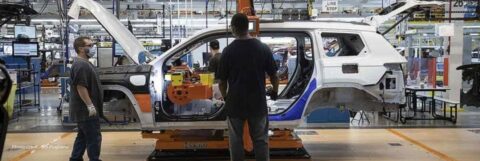The Strike Disproportionately Impacts Michigan
- To date, the strike has had a $3.95 billion economic impact, according to Anderson Economic Group. Michigan, with the greatest share of automotive-related production bears the brunt of the economic impact – Michigan’s economy is paying the price for the unnecessarily prolonged strike.
- Seven to 10 jobs are directly linked to every OEM job. That means for every Michigan worker on strike or laid off due to the strike, seven to 10 more jobs are at risk – restaurants, bars, barber shops, retail stores, and other local businesses.
- While UAW strikers receive “strike pay” from the union, others who are laid off due to the strike get little or nothing.
- Supplier firms are already laying off both production and administrative staff. Not only are some already in financial distress, but also their ability to get up and running post-strike is in question, which will lead to serious lingering economic and production impacts. A recent survey by The Vehicle Suppliers Association (MEMA) reports that 30% of suppliers have laid off employees due to the strike, and 60% are planning layoffs this month.
America’s Competitiveness is at Stake
- No one argues UAW workers deserve a raise. The Detroit Three have all put record contracts on the table in a transparent fashion. And even today, UAW auto workers are the best paid in the global automotive industry – far outpacing the foreign manufacturers building in the U.S., Tesla, and manufacturers operating overseas.
- The Detroit Three companies must invest “bet the farm” amounts in new technologies to remain competitive in the global market; they must have those resources. Should they falter to keep pace with global competition, the American economy (especially Michigan’s) will pay a tremendous price.
- In today’s advanced global manufacturing environment, it’s hard to argue that a vehicle made in one nation or another has a meaningful quality or efficiency advantage. In fact, transplants and Tesla reportedly assemble a vehicle in fewer hours than UAW-run plants.


